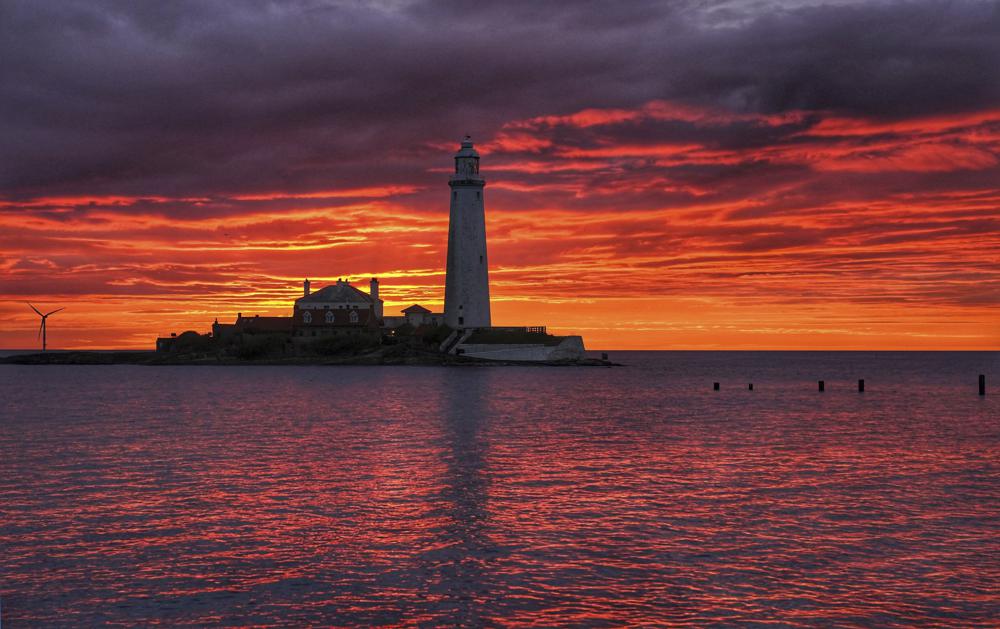British authorities issued their first ever “red” warning for extreme heat early next week, declaring a national emergency as forecasters predict record temperatures that will put even healthy people at risk of serious illness and death.
The warning covers Monday and Tuesday, when temperatures in England may reach 40 C (104 F) for the first time, the U.K Met Office said. The British record is 38.7C (101.7F), set in 2019.
The alert comes as scientists say climate change is increasing the likelihood of exceptional heat waves in Britain, a country better known for gray skies and rain. The chances of temperatures like those forecast for next week are already 10 times higher than they would be without the influence of human activity, said Nikos Christidis, a Met Office climate scientist.
“We hoped we wouldn’t get to this situation, but for the first time ever we are forecasting greater than 40°C in the U.K.,” Christidis said in a prepared statement. “In a recent study we found that the likelihood of extremely hot days in the U.K. has been increasing and will continue to do so during the course of the century.”
The U.K. Health Security Agency increased its own hot weather alert to the highest level, putting it to “national emergency.” The warning system was created in 2004, when concerns about climate change spurred authorities to develop their first plan to protect the public from severed heat.
”At this level, illness and death may occur among the fit and healthy, and not just in high-risk groups,” UKHSA said.
The weather alert, which covers a big chunk of England from London north to Manchester, also warns of potential disruption to air and rail travel and potential “localized loss of power and other essential services, such as water or mobile phone services.”
The two agencies issued lower level warnings earlier this week as large parts of the U.K. experienced higher than normal temperatures, although cooler weather prevailed Thursday and Friday. Temperatures are expected to rise in the coming days as the system that brought record highs to parts of Europe this week moves north over Britain.
“Even as a climate scientist who studies this stuff, this is scary,” said Professor Hannah Cloke, a natural hazards researcher at the University of Reading. “This feels real. At the start of the week I was worried about my goldfish getting too hot. Now I’m worried about the survival of my family and my neighbors.”
Nigel Arnell, a professor of climate system science at the University of Reading, said Britain needs to prepare for more hot weather in the future, retrofitting buildings to cope with extreme weather and planting more greenery in cities.
Adaptation and resilience need to become a political priority, he said.
“We can’t keep on dealing with extremes in crisis mode,” Arnell said.
(AP)












3 Responses
Many old houses in England dont have air conditioning. I wonder if there’s going to be a mad rush to buy ACs and then a shortage.
There is no evidence whatsoever that the heatwave is a “consequence” of climate change. It is a weather event, one which is the direct result of an extremely rare set of meteorological conditions.
Even accepting that average summer temperatures in the UK have increased by a half a degree or so since the 1940s, the upcoming heatwave would still have occurred a century ago, albeit with temperatures a half a degree lower.
To label it as “potentially dangerous” is irresponsible scaremongering, given that millions of people from the UK fly to Spain, where temperatures are regularly much higher.
I wonder whether these people ever put out red warnings every winter when it gets cold. Many more people die in the cold of winter; death tolls in summer are always the lowest of any season, heatwaves or not.
There was a bigger heatwave in 1976. Before all the so-called “glowball warmening”.